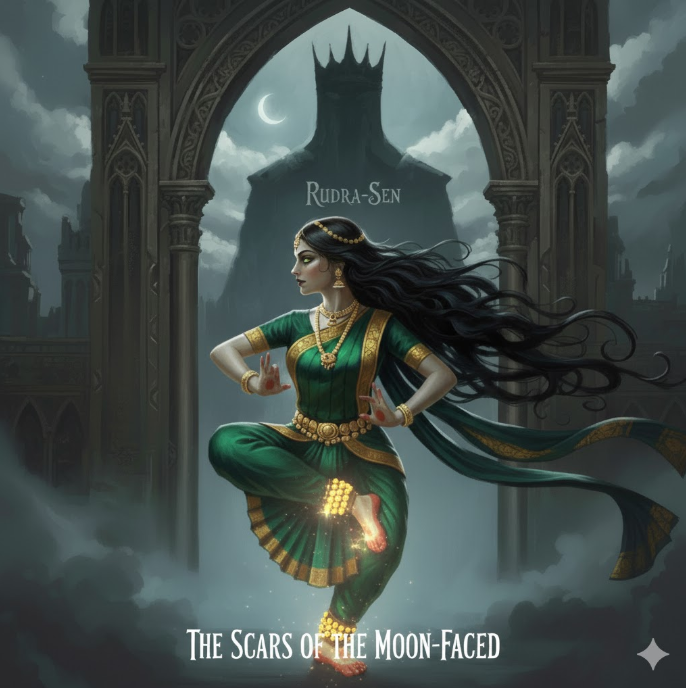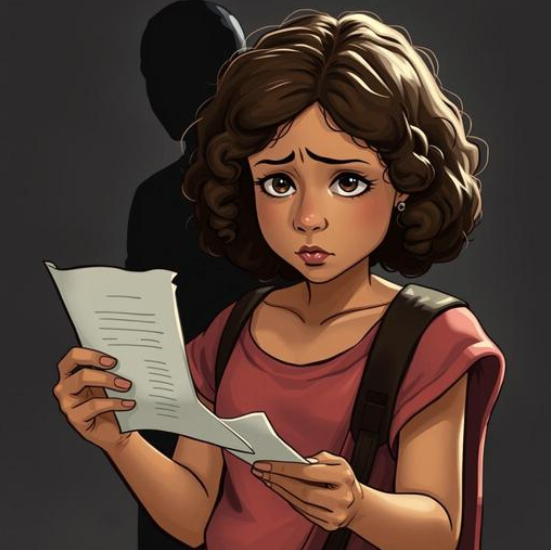Saturday mornings at the PG were slow. The kitchen ladies clattered steel plates, the smell of upma and filter coffee rising through the corridor. Meera sat cross-legged on her narrow bed, rereading her notes from the week. She preferred quiet Saturdays, when most girls left for shopping or cinema, and the hostel emptied into stillness.
By ten, she was ready. She packed her cloth bag with notebooks and her favorite fountain pen, tied her hair into a loose bun, and set off on her walk. The Nehru Enclave streets were damp from an early rain, leaves plastered darkly against the pavement. She pulled her dupatta closer, enjoying the solitude.
The library at Ramanujan was her sanctuary. Tall shelves lined with cracked spines, the air faintly musty with age—she felt invisible here, but in the best way. She chose a corner desk by the window, unpacked her books, and sank into the comfort of printed words.
Half an hour later, the chair opposite scraped back. She looked up.
“Good morning,” Ayan said, sliding into the seat with a stack of volumes. His presence seemed to tilt the quiet space.
“You again,” she murmured.
“Guilty,” he said lightly. “Photography lab was closed, so I thought I’d use my time wisely.” He tapped his pile—modern poetry anthologies and a slim collection of essays.
She eyed them skeptically. “You actually read these?”
“Surprised?” His mouth curved. “I’m not all lenses and light. Words matter too.”
Meera looked back at her book. “The library is big. Plenty of other tables.”
“But this one had space,” he said simply. He opened a book, and to her surprise, he actually read. No interruptions, no forced small talk—just the occasional turning of a page.
Minutes passed. A quiet rhythm formed: her pen scratching notes, his steady reading. At one point he slid a paper across to her without looking up. On it, he had written a line: Do you ever feel books notice us as much as we notice them?
She frowned, then, against her better judgment, wrote back: Books don’t notice. They wait.
His lips twitched when he read it, but he didn’t reply.
Around noon, the librarian rang the bell for closing. Meera packed her things quickly, but as she stood, Ayan asked, “Had lunch?”
“My PG serves at one,” she said.
“Good. Because I was about to offer.” He grinned at her look. “Not a date, Meera. Just chai and a samosa from Sharma’s stall outside the gate. Consider it… a truce.”
Her instinct was to refuse. Yet her stomach betrayed her with a low rumble, and she flushed. “Fine,” she said. “Just chai.”
They walked side by side down the stone steps, the afternoon warm and fragrant with frying oil from the roadside stall. Sharmaji greeted Ayan like an old friend and handed them steaming cups of adrak chai.
Meera sipped carefully. The ginger burned, but in a way that felt alive. She looked at him across the rim of her cup. He wasn’t watching her with mockery or pity—just patience.
“See?” he said softly. “Better than PG tea.”
She rolled her eyes, but the corner of her mouth lifted despite herself.
Later, when she returned to her room, the other girls teased her about smelling of chai and rain. She laughed them off, but that evening as she called her parents, she didn’t mention the walk, or the library, or the samosa stall.
Some things, she realized, felt too new, too fragile, to name aloud.






Write a comment ...